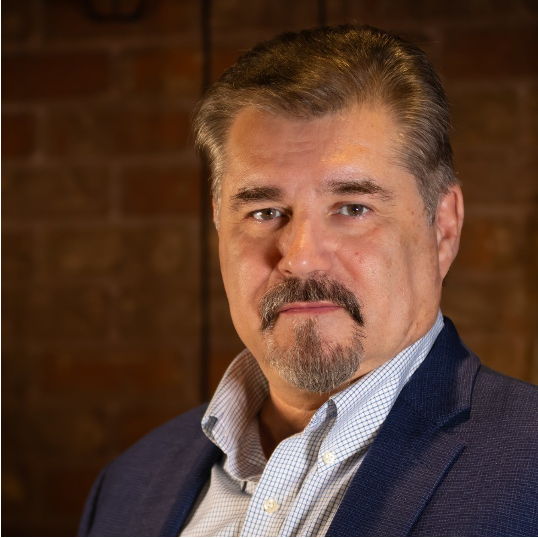Cordish Gaming & Live! Casinos
 ">
">
IT is the Foundation of Analytics
By Buddy Frank
While the common ancestor of most casino data analytics packages was the Slot Performance component, these days most of the interest. and many new-found rewards are coming from the Marketing and Hosting applications. But the true foundation of all of these applications has always been databases and basic Information Technology. If your IT team isn’t happy with your product, your chances of any long-term success are greatly diminished.

Frank Bonini, who is the CIO and Senior Vice President, at Cordish Gaming & Live! Casinos, can testify to that. “I’ve got a really sharp IT team, and we know a lot about SQL and relational databases and how you design, and tune, and keep it healthy. The difference between Andrew and some of these other vendors is that Andrew sees the value in that.” He is talking about Andrew Cardno, the Chief Technology Officer and co-founder of Quick Custom Intelligence.
Bonini explains, “His approach to software development and to database structure, the openness that we get with QCI, is unlike many other vendors. For instance, when I asked them ‘do you mind sharing your data dictionary?’ He said, “Oh, yeah. Would you also like a listing of all the stored procedures, and what they do?’ ‘Sure, how long is it going to take you to put that together?’ ‘Oh, no, we have a document.’” Bonini found that refreshing, since sharing a data dictionary is seldom permitted from even the smallest database companies to giants like Oracle. While such details are of little interest to a casino host working with a VIP, they can be major concerns for a casino’s computer team.
Security is also a hot topic for IT departments, “We ended up with QCI because they were far more responsive, and they had some basics that we felt more comfortable with right away. Number one is they can be ‘on-premise’ (hosting of the software and data) and not only in the cloud. We don’t want a copy of our player database in the cloud. The data is simply too critical for us to trust to someone else with it.”
“Andrew has been talking to the tribes about the issue of data sovereignty and the cloud. I happen to agree with him 100% on that topic, even though we’re not tribal. For me it really comes down to the fact that if we have a breach, I need to be able to tell somebody with a straight face that we were doing everything possible to prevent that.”
Bonini continues, “If I’m going to take the most important data in my company and go give it to someone else to manage, I don’t think I could answer that question in the affirmative. And to be honest about it, because it’s our data, we want to be responsible for it. We can protect it better than anybody else, regardless of what can be done in the cloud. So, I’m very much an “on-premise” person. We do cloudify some commodity workloads, like Microsoft Office, email, things like that. Things that are ubiquitous. But not the important stuff like the crown jewels of the organization’s data.”
“On-premise” simply means that the servers where the program and your data are stored are physically located on your property, and not at some server farm in another state, or even another country. While even a local server can be hacked, most agree that there is less risk of penetration when your data is stored somewhere with fewer access points. However, while not recommended, QCI will support a cloud implementation if it is a customer requirement.
Another important issue with many IT leaders is trust, and trust in new technology. On that front, Bonini also gives QCI high marks, “They are very much on the leading, sometimes bleeding, edge of the database technology.
But that’s what I want from that kind of vendor. They’re so heavily database dependent, that they need to be thinking that way. They need to be thinking about how they can utilize features available in newer versions of SQL1 Server to make their product even better. So, I’m glad they do it. But I’m also glad they’re willing to work with those of us who aren’t quite as adventurous.”
New technology often comes from updates, but those can also create separate nightmares for the IT department as they’ve been known to do with some products. “When we implement our change control process for QCI,” Bonini explains, “it’s a piece of cake because we’ve got all the details everybody needs. And the updates have gone very, very well. I can’t think of anything we’ve done with QCI from an update point of view that’s ever set us back at all. That’s a good thing because I can’t say that about other systems. I can recall when we were recovering from other vendor’s updates for the next six months.”
It’s worth noting that the old saying about “a happy wife is a happy life” can also apply to your work life by substituting “a happy IT department.”
The Cordish Companies, in addition to multiple nationwide entertainment venues, operates three major “Live!” branded casinos in Maryland, Philadelphia and Pittsburgh. They also helped develop two huge Seminole casinos in Hollywood and Tampa, Florida, and are working on a casino redevelopment project in Bossier City, Louisiana.